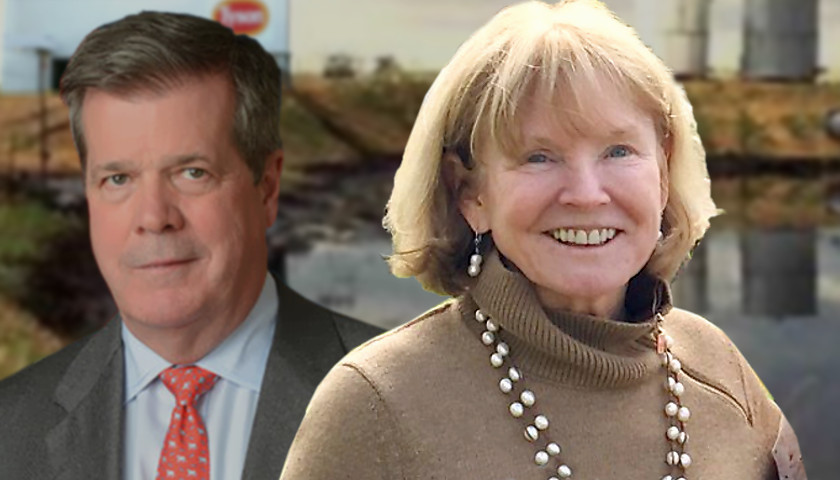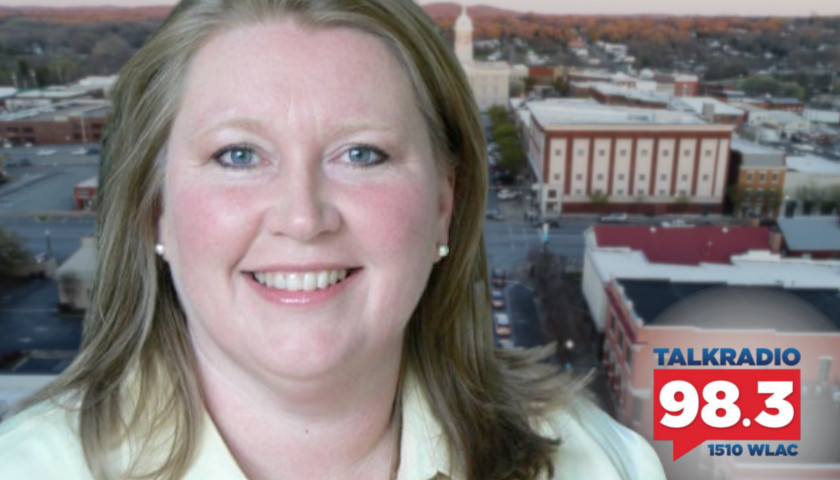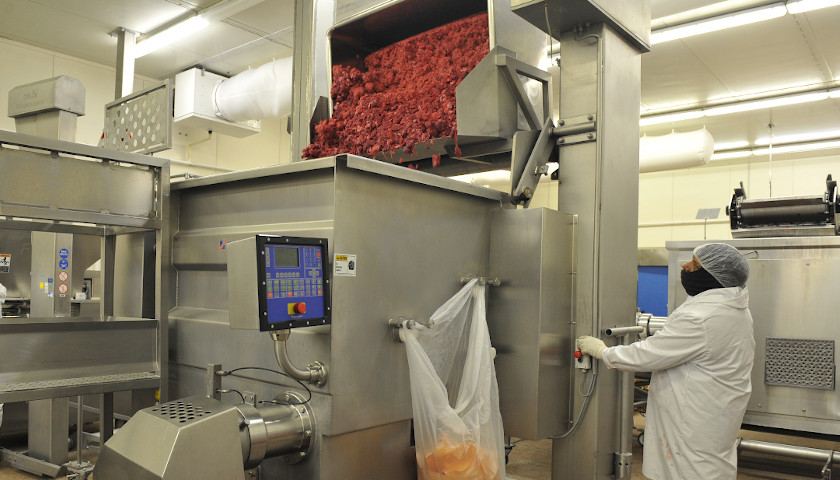Anne Davis, wife of Democrat gubernatorial candidate Karl Dean, left her position as the managing attorney for the Southern Environmental Law Center (SELC) to help her husband run for governor. Davis, who helped establish the Nashville office in 2012, left her position in 2017, just in time to avoid potential conflicts of interest for Dean should he become governor.
The SELC’s regional work challenging the environmental impact of chicken slaughterhouses and processing plants places Dean at best, in an awkward position running for a state-wide office in Tennessee where a fifth Tyson Foods operation is being launched and another is expanding.
While Dean was hobnobbing with Tyson Foods CEO and President Tom Hayes at the plant’s ground-breaking ceremony in Humboldt on Wednesday, his Democrat opponent, Rep. Craig Fitzhugh, was busy pointing out the project’s flaws to Tennessee Attorney General Herbert Slatery. Fitzhugh is seeking answers to the concerns raised by constituents in his rural county who are likely to be impacted by the Humboldt plant and the estimated 600 new chicken houses that will supply the chickens to be slaughtered and processed.
In addition to the Tennessee office which Anne Davis recently left, the SELC staffs offices in Alabama, Georgia, North Carolina, South Carolina, Virginia and Washington, D.C. to pursue its mission of ensuring a healthy environment for all the people of the region they cover:
SELC believes that everyone in this region deserves to breathe clean air, drink clean water, and live in a healthy environment. For over 30 years, SELC has been a vigilant and staunch defender of the South and its people, using our law and policy expertise to keep pollution out of our rivers and groundwater, and to ensure that smokestacks and tailpipes do not dirty our air.
Davis, who inherited her wealth from her coal mining magnate uncle Joe C. Davis, has ironically, been a prominent figure in a 2017 case against the TVA involving discharges of coal ash into the Cumberland River:
‘This case peeled back the TVA facade and showed its customers, state lawmakers and regulators, and all of Tennessee, just how poorly the utility has treated the Cumberland River, an important waterway that provides Nashville’s drinking water,’ said Anne Davis, managing attorney of SELC’s Nashville office.
Davis was asked by Nashville publication StyleBlueprint why she chose to open the office for the Southern Environmental Law Center in Nashville:
I have had an interest in environmental law since law school. Most recently, after Karl was elected as mayor, I chaired a task force on environmental sustainability and then served on the Green Ribbon Committee. When I learned that SELC was opening an office in Tennessee, it seemed to be a perfect opportunity for me to marry my passion for the environment with my legal skills and my knowledge of the environmental community here. Also, with our second child about to go to college, it seemed a perfect time for me to take on a more intense career (something I have missed since I stopped practicing law). The work SELC does is remarkable and consequential, and the lawyers there are as talented and effective as any I have ever known. Simply put, this was a once in a lifetime opportunity for me.
SELC will bring valuable resources to nonprofit environmental organizations in our state and will improve our ability to advocate for important quality of life issues. We represent nonprofit organizations, ranging from the American Academy of Pediatrics, challenging EPA’s rules on mercury emissions because of the impacts on children’s health, to Ducks Unlimited, advocating to preserve our wetlands. While SELC has been doing work here for years, many times behind the scene, having an office here will enable us to make much more of a difference.
The North Carolina office of SELC in 2014, assisted concerned citizens in temporarily stopping a plan for a chicken slaughterhouse near the banks of the Cape Fear River. The plant was a high-volumer operation, “that would process more than a million chickens per week and generate more than a million gallons of wastewater every day. After only minimal treatment, this wastewater would then be sprayed directly on surrounding fields, exposing the Cape Fear to increased nutrient pollution and associated algal blooms. Moreover, hundreds of new poultry farms would likely spring up to supply the processing plant—further contributing to the area’s overall pollution levels.”
With continued help from SELC the next year, the plan for disposal of processed wastewater from the slaughterhouse was opposed. The company proposed spraying its wastewater on land surrounding its plant instead of dumping it into surface waters which would require much stricter permitting requirements.
Residents were concerned because the company in question had a history of “repeatedly fail[ing] to treat its slaughterhouse wastewater in other states to the level required to protect receiving waters and has repeatedly violated water quality permits at the majority of its facilities.”
In the past two years, Governor Haslam has signed bills loosening and in some instances, eliminating certain permitting related to chicken farming. Even though the Tennessee Department of Environment & Conservation (TDEC) retains its authority to monitor, investigate and take action on water quality violations, without required permitting, much of the chicken farming which is expected to expand in Tennessee, will operate with greatly reduced tracking and accountability.
The TDEC Division of Water Resources is currently withholding a construction permit from Tyson Foods in Humboldt due to deficiencies in the Stormwater Pollution Prevention Program plan that was submitted. One of the deficiencies noted in Tyson’s plan was misidentifying the Middle Fork Forked Deer River as a viable receiving body of water for its stormwater discharges. This river is on the list of “impaired and threatened waters” under the Clean Water Act.
Anne Davis’ passion for fighting the polluters hasn’t stopped her husband from embracing Tyson Foods, despite its history of environmental violations. With his wife out of the SELC office, it is easier for Dean, who lives in Nashville, to focus his attention on the economic aspects of a new Tyson plant, while his primary opponent Craig Fitzhugh addresses the more serious and difficult issues facing his family and constituents who live a stones throw from the effects the new Tyson operation will bring.
As for Dean, his straight shot to the Democratic gubernatorial nomination has hit a speed bump now that opponent Fitzhugh has staked out the higher “environmental moral ground” formerly held by his wife Ann Davis when she was with the SELC.






[…] Davis sits on the Nashville chapter’s advisory board having just left her position as the managing attorney at the Southern Environmental Law Center. Anne Passino, her comrade in arms at the Law Center, […]
Principles do not matter to these glory seeking elites. It is all about fame and power.